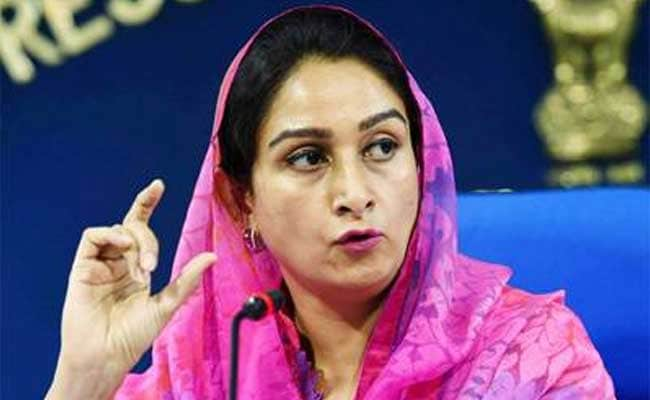Why Is BJP's Oldest Ally Akali Dal Upset? Row Over Farm Bills Explained

Union Minister Harsimrat Badal resigned on Thursday.
Here is your ten-point cheat sheet on this big story:
The three bills are - the Farmers (Empowerment and Protection) Agreement of Price Assurance and Farm Services Bill; the Farmers Produce Trade and Commerce (Promotion and Facilitation) Bill; and the Essential Commodities (Amendment) Bill. They were passed in the Lok Sabha amid protests and an opposition walk-out. The bills will next be tabled in the Rajya Sabha.
The government says the proposed laws are meant to help small and marginal farmers. However, the bills have triggered massive protests in agriculture-dependent states where farmers fear loss of livelihood.
The Farmers (Empowerment and Protection) Agreement of Price Assurance and Farm Services Bill seeks to develop a national framework for farming agreements to empower farmers through networking with agribusiness firms, exporters and retailers.
The bill, says the government, permits a farmer to enter into a written farming agreement for the supply of farm produce at an agreed price. The agreement should clearly specify the price of produce and any additional amount over and above the guaranteed price.
The Farmers Produce Trade and Commerce (Promotion and Facilitation) Bill seeks to give farmers the choice to sell their produce at competitive prices anywhere in the country.
According to the government, the bill aims at creating an ecosystem where farmers and traders enjoy the freedom of choice relating to the sale and purchase of farm produce.
This will facilitate remunerative prices through competitive alternative trading channels to promote efficient, transparent and barrier-free inter-state and intra-state trade, says the government.
The bills have stirred protests because farmers fear they will no longer get paid at the Minimum Support Price and commission agents fear they will be hit. Opposition parties the bills are "anti-farmer" as the agriculture sector will be left to the fate of corporate interests.
States like Punjab and Haryana also fear losing revenue because they cannot collect "Mandi fees" if farmers can sell their produce anywhere.
Much of the revenue of these states comes from central procurement agencies who buy produce like wheat and rice for the central pool. Their worry is that if central agencies do not procure from state Mandis, the state will lose commission.
tinyurlis.gdv.gdv.htclck.ruulvis.netshrtco.detny.im
